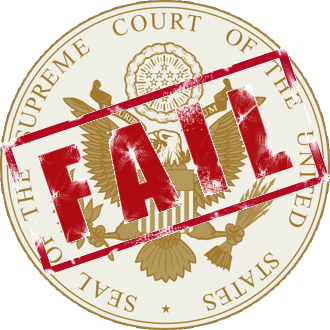art credit: dailybail.com
Thoughts to share with
family and friends
over the Independence Day
weekend
It’s more than backyard barbecues and fireworks. From military.com:
On July 4, 1776, the thirteen colonies claimed their
independence from England, an event which eventually led to the formation of
the United States. Each year on July 4th, also known as Independence Day,
Americans celebrate this historic event.
Conflict between the colonies and England was already a year
old when the colonies convened a Continental Congress in Philadelphia in the
summer of 1776. In a June 7 session in the Pennsylvania State House (later
Independence Hall), Richard Henry Lee of Virginia presented a resolution with
the famous words: "Resolved: That these United Colonies are, and of right
ought to be, free and independent States, that they are absolved from all
allegiance to the British Crown, and that all political connection between them
and the State of Great Britain is, and ought to be, totally dissolved."
Lee's words were the impetus for the drafting of a formal
Declaration of Independence, although the resolution was not followed up on
immediately. On June 11, consideration of the resolution was postponed by a
vote of seven colonies to five, with New York abstaining. However, a Committee
of Five was appointed to draft a statement presenting to the world the
colonies' case for independence. Members of the Committee included John Adams
of Massachusetts, Roger Sherman of Connecticut, Benjamin Franklin of
Pennsylvania, Robert R. Livingston of New York and Thomas Jefferson of
Virginia. The task of drafting the actual document fell on Jefferson.
On July 1, 1776, the Continental Congress reconvened, and on
the following day, the Lee Resolution for independence was adopted by 12 of the
13 colonies, New York not voting. Discussions of Jefferson's Declaration
of Independence resulted in
some minor changes, but the spirit of the document was unchanged. The process
of revision continued through all of July 3 and into the late afternoon of July
4, when the Declaration was officially adopted. Of the 13 colonies, nine voted
in favor of the Declaration, two -- Pennsylvania and South Carolina -- voted
No, Delaware was undecided and New York abstained. John Hancock, President of
the Continental Congress, signed the Declaration of Independence. It is said
that John Hancock's signed his name "with a great flourish" so
England's "King George can read that without spectacles!"
Today, the original copy of the Declaration is housed in the
National Archives in Washington, D.C., and July 4 has been designated a
national holiday to commemorate the day the United States laid down its claim
to be a free and independent nation.
From Rush Limbaugh’s
father, we learn what our Founding Fathers risked; this extract is always
available at Rush’s website:
Much To Lose
What kind of men were the
56 signers who adopted the Declaration of Independence and who, by their
signing, committed an act of treason against the crown? To each of you, the
names Franklin, Adams, Hancock and Jefferson are almost as familiar as household
words. Most of us, however, know nothing of the other signers. Who were they?
What happened to them?
I imagine that many of you
are somewhat surprised at the names not there: George Washington, Alexander
Hamilton, Patrick Henry. All were elsewhere.
Ben Franklin was the only
really old man. Eighteen were under 40; three were in their 20s. Of the 56
almost half - 24 - were judges and lawyers. Eleven were merchants, nine were
landowners and farmers, and the remaining 12 were doctors, ministers, and
politicians.
With only a few exceptions,
such as Samuel Adams of Massachusetts, these were men of substantial property.
All but two had families. The vast majority were men of education and standing
in their communities. They had economic security as few men had in the 18th
Century.
Each had more to lose from
revolution than he had to gain by it. John Hancock, one of the richest men in
America, already had a price of 500 pounds on his head. He signed in enormous
letters so that his Majesty could now read his name without glasses and could
now double the reward. Ben Franklin wryly noted: "Indeed we must all hang
together, otherwise we shall most assuredly hang separately."
Fat Benjamin Harrison of
Virginia told tiny Elbridge Gerry of Massachusetts: "With me it will all be
over in a minute, but you, you will be dancing on air an hour after I am
gone."
These men knew what they
risked. The penalty for treason was death by hanging. And remember, a great
British fleet was already at anchor in New York Harbor.
They were sober men. There
were no dreamy-eyed intellectuals or draft card burners here. They were far
from hot-eyed fanatics yammering for an explosion. They simply asked for the
status quo. It was change they resisted. It was equality with the mother
country they desired. It was taxation with representation they sought. They
were all conservatives, yet they rebelled.
It was principle, not
property, that had brought these men to Philadelphia. Two of them became
presidents of the United States. Seven of them became state governors. One died
in office as vice president of the United States. Several would go on to be US
Senators. One, the richest man in America, in 1828 founded the Baltimore and
Ohio Railroad. One, a delegate from Philadelphia, was the only real poet, musician
and philosopher of the signers. (It was he, Francis Hopkinson not Betsy Ross
who designed the United States flag.)
Richard Henry Lee, a
delegate from Virginia, had introduced the resolution to adopt the Declaration
of Independence in June of 1776. He was prophetic in his concluding remarks:
"Why then sir, why do we longer delay? Why still deliberate? Let this
happy day give birth to an American Republic. Let her arise not to devastate
and to conquer but to reestablish the reign of peace and law.
"The eyes of Europe
are fixed upon us. She demands of us a living example of freedom that may
exhibit a contrast in the felicity of the citizen to the ever-increasing
tyranny which desolates her polluted shores. She invites us to prepare an
asylum where the unhappy may find solace, and the persecuted repost.
"If we are not this
day wanting in our duty, the names of the American Legislatures of 1776 will be
placed by posterity at the side of all of those whose memory has been and ever
will be dear to virtuous men and good citizens."
Though the resolution was
formally adopted July 4, it was not until July 8 that two of the states
authorized their delegates to sign, and it was not until August 2 that the
signers met at Philadelphia to actually put their names to the Declaration.
William Ellery, delegate
from Rhode Island, was curious to see the signers' faces as they committed this
supreme act of personal courage. He saw some men sign quickly, "but in no
face was he able to discern real fear." Stephan Hopkins, Ellery's colleague
from Rhode Island, was a man past 60. As he signed with a shaking pen, he
declared: "My hand trembles, but my heart does not."
"Most Glorious
Service"
Even before the list was
published, the British marked down every member of Congress suspected of having
put his name to treason. All of them became the objects of vicious manhunts.
Some were taken. Some, like Jefferson, had narrow escapes. All who had property
or families near British strongholds suffered.
[Many harrowing stories of
the signers are here.]
Lives, Fortunes, Honor
Of those 56 who signed the
Declaration of Independence, nine died of wounds or hardships during the war.
Five were captured and imprisoned, in each case with brutal treatment. Several
lost wives, sons or entire families. One lost his 13 children. Two wives were
brutally treated. All were at one time or another the victims of manhunts and
driven from their homes. Twelve signers had their homes completely burned.
Seventeen lost everything they owned. Yet not one defected or went back on his
pledged word. Their honor, and the nation they sacrificed so much to create is
still intact.
And, finally, there is the
New Jersey signer, Abraham Clark.
He gave two sons to the
officer corps in the Revolutionary Army. They were captured and sent to that
infamous British prison hulk afloat in New York Harbor known as the hell ship
Jersey, where 11,000 American captives were to die. The younger Clarks were
treated with a special brutality because of their father. One was put in
solitary and given no food. With the end almost in sight, with the war almost
won, no one could have blamed Abraham Clark for acceding to the British request
when they offered him his sons' lives if he would recant and come out for the
King and Parliament. The utter despair in this man's heart, the anguish in his
very soul, must reach out to each one of us down through 200 years with his
answer: "No."
The 56 signers of the
Declaration Of Independence proved by their every deed that they made no idle
boast when they composed the most magnificent curtain line in history.
"And for the support of this Declaration with a firm reliance on the
protection of divine providence, we mutually pledge to each other our lives,
our fortunes, and our sacred honor."
Happy Independence Day!
art credit: roadtripsforfamilies.com (Roger Mastroianni photog)













